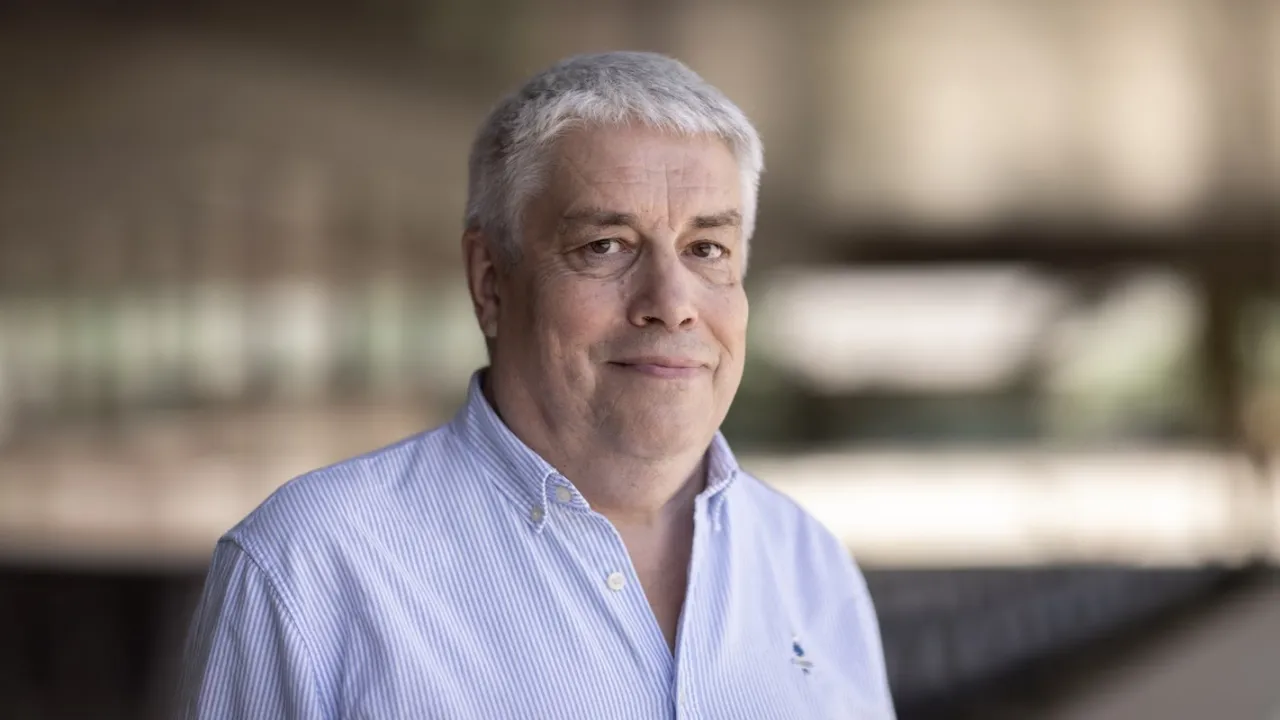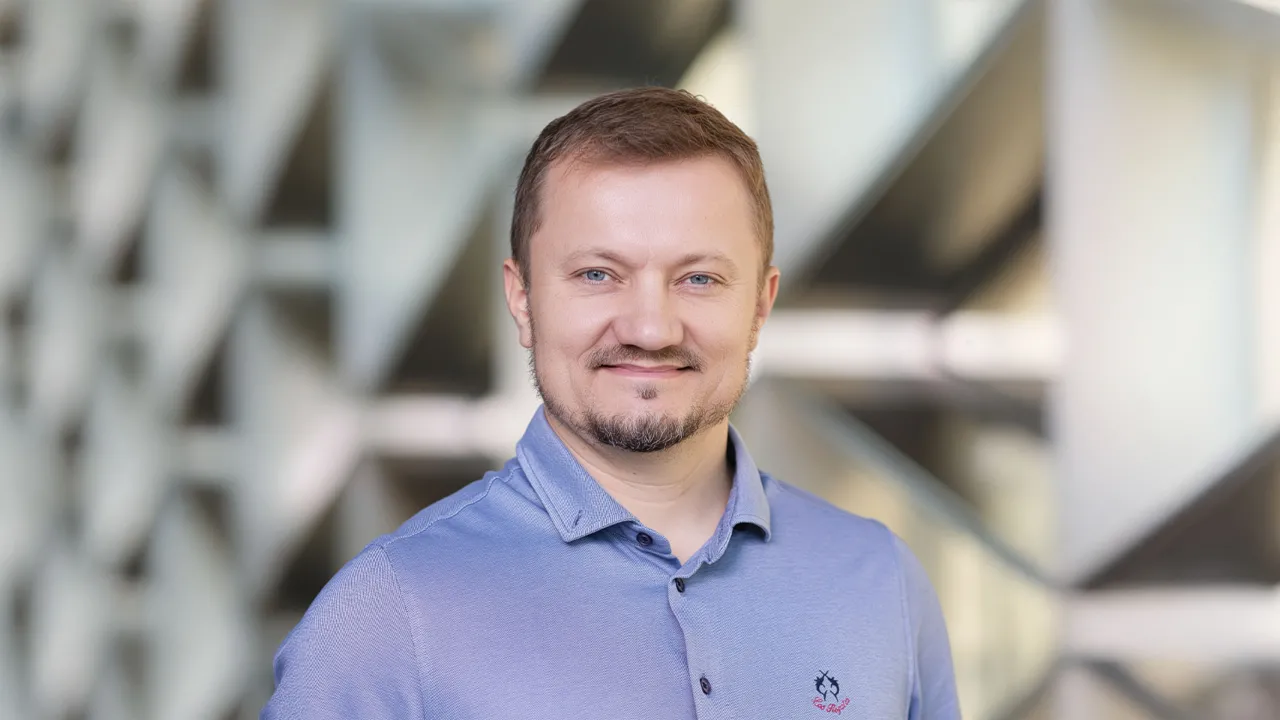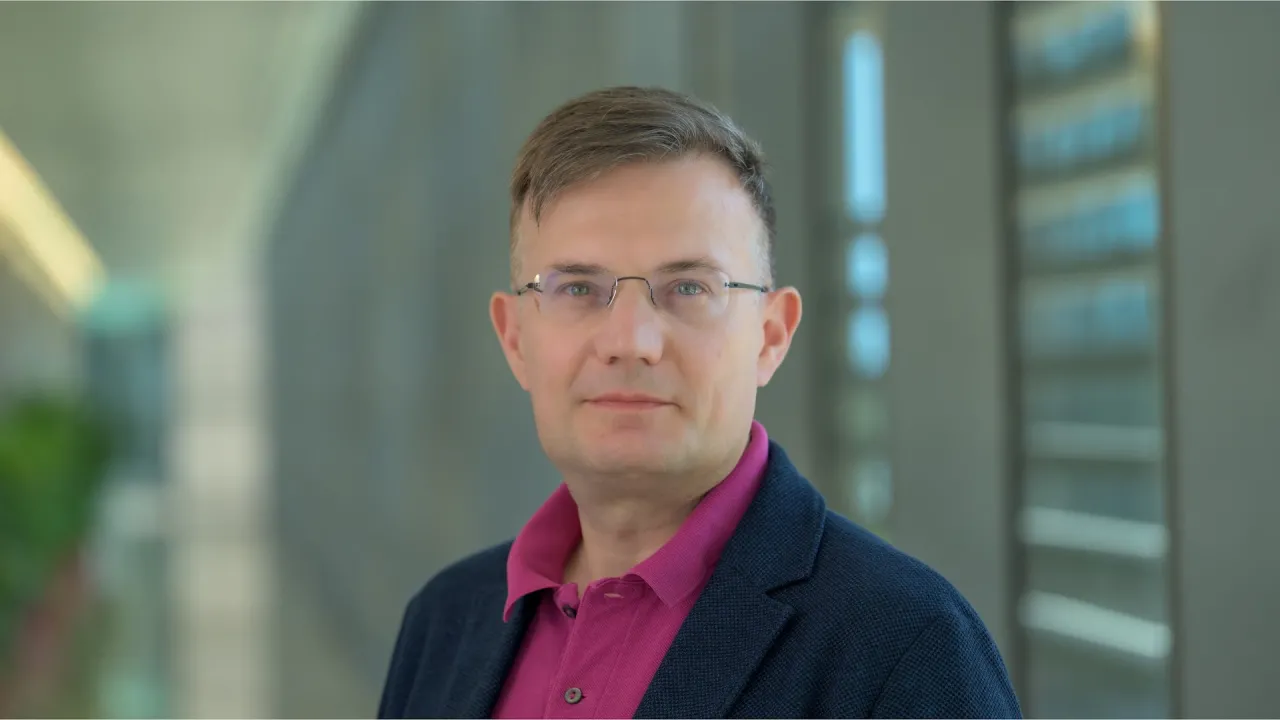
Mathematics of Data Science, Machine Learning and Optimization
Researchers in the mathematics of data science, machine learning, and optimization focus on algorithmic complexity, combinatorial optimization, and machine learning applications, including deep learning for partial differential equations and discrete optimization.
Related People
Biography
George Turkiyyah is a research professor in the Applied Mathematics and Computational Science program at KAUST.
Before joining KAUST, he was a professor at the American University of Beirut, where he also served as chair of the computer science department. Prior to joining AUB, he was an assistant professor and later an associate professor at the University of Washington in Seattle.
Turkiyyah earned a Bachelor of Engineering (B.Eng.) in civil and environmental engineering from the American University of Beirut, and both a Master of Science (M.S.) and a Doctor of Philosophy (Ph.D.) in computer-aided engineering from Carnegie Mellon University.
Turkiyyah has been involved in the development of knowledge-based AI systems that have been deployed in practice. He has also developed several widely used simulation codes for high-resolution finite element engineering applications. His work on fast methods for surgical simulation has led to a software startup and several patents.
His research has earned several awards, including the Transportation Research Board K.B. Woods Award in 2003 for best paper in design and construction, the Best Presentation Award at the ACM Solid and Physical Modeling Conference in 2007, and the Best Poster Award at the Medicine Meets Virtual Reality Conference in 2006.
He chaired the 2003 ASCE Engineering Mechanics Conference and co-chaired the Eighth ACM Symposium on Solid Modeling and Applications (SPM) in 2003. He is a member of ACM and the Society for Industrial and Applied Mathematics (SIAM).
Research Interests
Professor Turkiyyah’s current research interests include hierarchically low-rank matrix algorithms and their HPC/GPU implementations to support the development of simulation models at extreme scales.
His work addresses various applications of hierarchical matrix technology, including PDE-constrained optimization, high-dimensional statistics problems, multi-dimensional fractional diffusion problems, scientific data compression and second-order methods for training neural networks.
Education
Biography
Mikhail Moshkov is a professor of Applied Mathematics and Computational Science (AMCS) and an affiliated professor of Computer Science (CS) at KAUST. He is also the principal investigator of the Extensions of Dynamic Programming, Machine Learning, Discrete Optimization (TREES) research group.
Professor Moshkov holds an M.S. summa cum laude in 1977 from the University of Nizhni Novgorod, Russia. He obtained his Ph.D. in 1983 from the University of Saratov, Russia, and a Doctor of Science in 1999 from Moscow State University, Russia.
Before joining KAUST, he held professorships at the University of Nizhni Novgorod, Russia, and the University of Silesia, Poland.
Moshkov received the State Scientific Stipend in Mathematics for Outstanding Scientists from April 2000 to March 2003, awarded by the Presidium of the Russian Academy of Sciences. Additionally, he received the First Degree Research Prize, awarded by the rector of the University of Silesia, Poland, in 2006.
Research Interests
Professor Moshkov's research interests include: (i) The study of time complexity of algorithms in computational models such as decision trees, decision rule systems and acyclic programs with applications to combinatorial optimization, fault diagnosis, pattern recognition, machine learning, data mining, and analysis of Bayesian networks. (ii) The analysis and design of classifiers based on decision trees, reducts, decision rule systems, inhibitory rule systems, and lazy learning algorithms. (iii) Extensions of dynamic programming for sequential optimization relative to different cost functions and for study of relationships between two cost functions with applications to combinatorial optimization and data mining.
Biography
Before joining KAUST in 2017, he was an Associate Professor of Mathematics at the University of Edinburgh, and held postdoctoral and visiting positions at Université Catholique de Louvain, Belgium, and University of California, Berkeley, USA, respectively. Richtárik obtained a Mgr. in Mathematics ('01) at Comenius University in his native Slovakia. In 2007, he received his Ph.D. in Operations Research from Cornell University, U.S. Dr. Richtarik is a founding member and a Fellow of the Alan Turing Institute (UK National Institute for Data Science and Artificial Intelligence), and an EPSRC Fellow in Mathematical Sciences.
A number of honors and awards have been conferred on Dr. Richtárik, including:
- the Best Paper Award at the NeurIPS 2020 Workshop on Scalability, Privacy, and Security in Federated Learning (joint with S. Horvath);
- the Charles Broyden Prize, a Distinguished Speaker Award at the 2019 International Conference on Continuous Optimization, the SIAM SIGEST Best Paper Award (joint with O. Fercoq);
- the IMA Leslie Fox Prize (second prize, three times, awarded to two of his students and a postdoc);
- the SIAM SIGEST Best Paper Award (joint award with Professor Olivier Fercoq);
- the IMA Leslie Fox Prize (Second prize: M. Takáč 2013, O. Fercoq 2015 and R. M. Gower 2017);
- the INFORMS Computing Society Best Student Paper Award (sole runner-up: M. Takáč);
- the EUSA Award for Best Research or Dissertation Supervisor (Second Prize), 2016;
- and the Turing Fellow Award from the Alan Turing Institute, 2016.
Before joining KAUST, he was nominated for the Chancellor’s Rising Star Award from the University of Edinburgh in 2014, the Microsoft Research Faculty Fellowship in 2013, and the Innovative Teaching Award from the University of Edinburgh in 2011 and 2012.
Dr. Richtárik has given more than 150 research talks at conferences, workshops and seminars worldwide. And several of his works are among the most read papers published by the SIAM Journal on Optimization and the SIAM Journal on Matrix Analysis and Applications.
Dr. Richtárik regularly serves as an Area Chair for leading machine learning conferences, including NeurIPS, ICML and ICLR, and is an Action Editor of the Journal of Machine Learning Research (JMLR), Associate Editor of Optimization Methods and Software and Numerische Mathematik, and a Handling Editor of the Journal of Nonsmooth Analysis and Optimization. In the past, he served as an Action Editor of Transactions of Machine Learning Research and an Area Editor of Journal of Optimization Theory and Applications. He was an Area Chair for ICML 2019 and a Senior Program Committee Member for IJCAI 2019. And he is an Associate Editor of Optimization Methods and Software and a Handling Editor of the Journal of Nonsmooth Analysis and Optimization.
Research Interests
Professor Richtárik’s research interests lie at the intersection of mathematics, computer science, machine learning, optimization, numerical linear algebra, and high-performance computing. Through his work on randomized and distributed optimization algorithms, he has contributed to the foundations of machine learning, optimization and randomized numerical linear algebra. He is one of the original developers of Federated Learning – a new subfield of artificial intelligence whose goal is to train machine learning models over private data stored across a large number of heterogeneous devices, such as mobile phones or hospitals, in an efficient manner, and without compromising user privacy. In an October 2020 Forbes article, and alongside self-supervised learning and transformers, Federated Learning was listed as one of three emerging areas that will shape the next generation of Artificial Intelligence technologies.
His recent work on randomized optimization algorithms—such as randomized coordinate descent methods, stochastic gradient descent methods, and their numerous extensions, improvements and variants)—has contributed to the foundations and advancement of big data optimization, randomized numerical linear algebra and machine learning.
Education
Biography
Professor Tempone received his Ph.D. in numerical analysis in 2002 from the Royal Institute of Technology, Sweden. The next phase of his career took him to the United States, where he completed his postdoc at the University of Texas Institute for Computational and Engineering Sciences (ICES), before joining Florida State University as an assistant professor of mathematics.
Tempone joined KAUST in 2009 as a founding faculty member, as an associate professor of applied mathematics, and became a full professor in 2015. He is also principal investigator of the Stochastics Numerics Research Group.
A variety of fields, such as computational mechanics, quantitative finance, biological and chemical modeling, and wireless communications, are driving his research. More specifically, his research contributions include a posteriori error approximation and related adaptive algorithms for numerical solutions to deterministic and stochastic differential equations. His honors include the German Alexander von Humboldt Professorship (2018–2025), the first Dahlquist Fellowship in Sweden (2007–2008), and being elected program director of the SIAM Uncertainty Quantification Activity Group (2013–2014).
Research Interests
Tempone's expertise and research interests lie at the intersection of applied mathematics, computational science, and stochastic analysis, with a strong focus on developing and analyzing numerical methods for stochastic and deterministic problems. His work emphasizes adaptive algorithms and hierarchical and sparse approximation, Bayesian inverse problems and data assimilation, optimal experimental design, scientific machine learning, stochastic optimization, optimal control, and uncertainty quantification, aiming to push the boundaries of computational efficiency and accuracy in simulations.
At the helm of the Stochastic Numerics Research Group at KAUST, Tempone is particularly interested in the development and analysis of numerical methods to advance applications spanning computational mechanics, quantitative finance, renewable energy sources management, biological and chemical modeling, and wireless communications.
His approach is theoretical and highly applicable, addressing real-world problems across various domains while grounded in solid foundations of mathematical and computational techniques. His work is instrumental for those interested in the practical application of mathematics to solve complex, real-world issues, making his research group an ideal place for potential collaborators, postgraduate students, postdocs, and research scientists looking for cutting-edge projects at the nexus of uncertainty quantification and computational science.
Education
Rolf Krause
applied mathematics Numerical Solution of Partial Differential Equations Finite elements machine learning Numerical Optimization medicine computational mechanics contact problems fluid-structure interactions cardiac simulation biomechanics geology Multiphysics Simulation HPC optimization Multigrid Domain Decomposition software development
Biography
Rolf Krause is a full professor in the Applied Mathematics and Computational Sciences Program at KAUST, with a career spanning academia, research and leadership. Before joining KAUST, he was a full professor at Università della Svizzera italiana in Lugano, Switzerland, where he directed the Institute of Computational Science from 2009 to 2020 and has served as co-director of the Center for Computational Medicine in Cardiology since 2014.
Beyond his research roles, Professor Krause has held notable leadership positions including a director of the interdisciplinary Euler Institute in 2021 and was the founding dean of the Faculty of Mathematics and Informatics at UniDistance Switzerland in 2022.
His commitment to academic service includes roles such as chairman of the examination board for mathematics studies and chairman of the board of finance for tuition fees at the University of Bonn from 2007 to 2009, as well as membership in the academic senate at USI from 2017 to 2021.
His work has earned numerous awards, including the Taylor & Francis Prize for Innovative Contribution to Theoretical Biomechanics/Biomedical Engineering and the MATH+ Distinguished Visiting Scholar recognition from the MATH+ Center in Berlin.
Professor Krause holds a Doctor rerum naturalium in Mathematics with distinction ("summa cum laude") from The Free University of Berlin, awarded in 2001. He also earned a Diploma in Mathematics with a minor in Economics from the same institution in 1996.
Research Interests
Professor Krause's research focuses on numerical simulation, machine learning, optimization, and data-driven approaches. A major focus of his research is the design and analysis of efficient and reliable algorithms that can be used to solve complex problems in scientific computing and machine learning.
Krause and his colleagues use mathematical understanding and computer science expertise to advance sustainable progress in many areas, from medicine to geology. They provide scientific software capable of solving complex, large-scale problems that can run on modern supercomputers such as KAUST’s Shaheen III.
Areas of expertise and focus
- Contact problems in mechanics
- Scientific software
- Multilevel and domain decomposition methods
- Optimization
- Iterative solution of large-scale systems
- Parallel computing
- High-performance computing (HPC)
- Coupled problems
- Finite elements
- Non-linear solution methods
- Neural networks
- Physics-informed neural networks
- Cardiac simulation
- Biomechanics
- Computational geoscience
Application areas
- Medicine
- Computational mechanics
- Contact problems
- Fluid-structure interaction
- Cardiac simulation
- Biomechanics
- Geology
- Complex and coupled multiphysics




